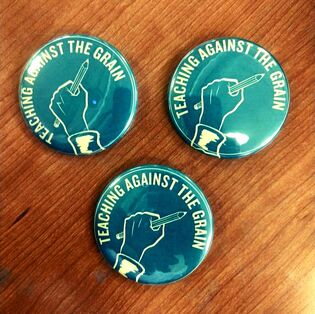teaching philosophy
|
I approach teaching as a process of collective healing because I recognize that both teachers and students arrive in the classroom with lived experiences of oppression, violence, and trauma. My job is not to heal my students but to activate their critical questions by building an empowering space where we can reclaim our individual and collective struggles as the source of knowledge.
Guided by the principle of self-determination, I aim to equip my students with key tools for independent thinking. As a higher education teacher, I focus on advanced cognitive skills like analysis, evaluation, and creation even in my lower-division courses. Challenging dominant assumptions about the human nature, I offer existing theories as well as personal narratives to contextualize the reality as inherently multiple, layered, and even fragmented. As a social scientist, I'm skeptical of any fundamental or universal "Truth" about our being. I argue that knowledge is relational, embodied, and transformative -- it resides in our relationships, in our bodies, and in the ways in which we strive to grow. My priority is not whether my students have memorized facts and concepts that can become obsolete at any moment. Rather, I want to make sure that they are nurturing their capacities for imagination, so that they can recognize what connects us, interpret how we should change, and practice their wildest dreams into the reality. |
signature courses
Click to view the syllabus:
Introduction to Sociology
Social Inequalities
Urban Development and Community Change
Gender and Social Change in Korea
Asian American Identities and Images
Introduction to Sociology
Social Inequalities
Urban Development and Community Change
Gender and Social Change in Korea
Asian American Identities and Images
teaching awards
2022 Excellence in Leadership and Teaching Award
School of Graduate Studies, Rutgers University
2018 Harry C. Bredemeier Award for Excellence in Undergraduate Teaching
Department of Sociology, Rutgers University
School of Graduate Studies, Rutgers University
2018 Harry C. Bredemeier Award for Excellence in Undergraduate Teaching
Department of Sociology, Rutgers University
Teach-in for rutgers apida communities and allies
|
Friday, April 16, 2021
With my colleague and dear friend, Mi Hyun Yoon (PhD Candidate in American Studies, Rutgers), I co-led a free and public teach-in on Asian, Pacific Islander, and Desi American (APIDA) communities and struggles. This event emphasized the importance of Asian American Studies and the ongoing student efforts at Rutgers and beyond to institutionalize AAS departments and programs. |
pedagogy coaching & mentorshipI offer workshops on anti-oppressive education |
peer coaching worksheet
|
I created this peer coaching worksheet to proliferate a culture of peer coaching at the grassroots and institutional levels. The worksheet allows you to achieve clarity about your process, foster your sense of ownership, and empower you to drive the transformation you deserve. Below are some samples -- the full worksheet includes 20+ thought-provoking questions and activities! |
|
You can access and download the full worksheet from the button above.
This worksheet is intended for individual use in a peer-to-peer context only. By using this worksheet (i.e. filling it out and having a conversation about it), you have agreed to the Terms of Use (slide #4). |
student testimonies
Below are selected student comments for Introduction to Sociology in Spring 2018 at Rutgers University.
I was not expecting this course to teach me anything practical, but boy I was wrong. I found myself asking better questions about current events, and even in my own discipline I began to recognize human struggles in areas I would [not] have seen before. |
This is probably the best social science class I have ever taken, it focused more on pushing us to ask challenging questions and think critically about current events instead of pointless memorization. The professor did an excellent job of making the topics we talk about relational to our personal experiences.. |
The unconventionality. He cares about your thinking, not whether you can regurgitate pompous jargon. This, in my opinion, is the way Sociology should be taught in University. He forces you to be a critical thinker and personally I think that is a very imperative skill to learn in Intro classes. In this day and age, Professor Haruki should be a model for how others teach Sociology. |
Haruki makes sociology fun and super interesting. You can tell he has a passion for this subject and it shows when he's teaching. |
I have learned to open my mind to new ideas even more than college has already taught me and I learned that I have an interest in sociology. |
He inspired me to be honest. Haruki had so much hope in the world that he inspired me to be not only better but to believe in the world. |
teaching against the grain
|
My colleagues and I are part of ongoing discussions on critical pedagogy by and for students and teachers of color. We have organized a series of symposia, "Teaching Against the Grain" in 2017 and 2019 to grow as a community of anti-oppressive educators. Click the photo below to learn more! |

